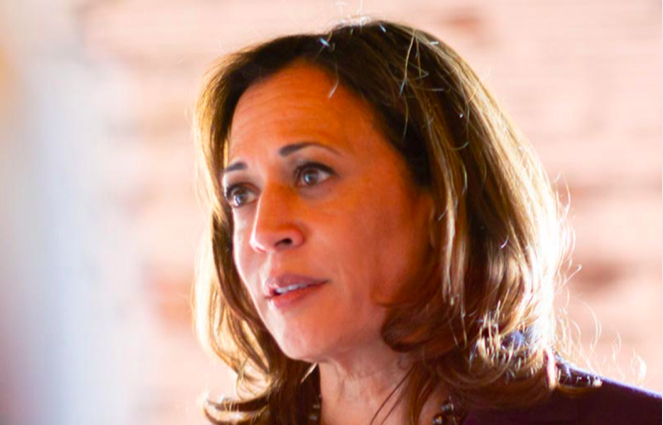The last time a sitting President was re-nominated at a Democratic National Convention was in Charlotte, North Carolina in 2012. I was a California delegate, and the incumbent was Barack Obama. We were taking another crack at “hope.”
Long before that—1968—a re-anointment was scheduled for Chicago but Vietnam, the shock of Lyndon Johnson stepping down, and Robert Kennedy’s assassination got in the way. I was a kid watching the chaos on my parents TV.
In two weeks, I’m heading (back) to Chicago. Not as a delegate this time (I’m labor chair emeritus of the California democratic party) but as an invited guest to “observe” the action.

Charlotte tried to be a party but, hell, it was Charlotte, home of NASCAR and a small downtown of new glassy midrises for corporations like the Bank of America who’d left San Francisco for the cheaper jobs and real estate of the South. Every day we endured overzealous security operations at the small convention center, which had been surrounded with iron security fences that resembled the Israeli barrier wall that keeps Palestinians from entering Jerusalem.
The only “highlights” included Barry Goldwater’s granddaughter delivering the Arizona delegation vote for Obama and a special invitation to Nancy Pelosi’s fundraiser that included a Tony Bennet concert. The only “excitement” I experienced was when a sheriff threatened to arrest me when I showed up with a six pack of beer at a (wonderful!) BBQ pork restaurant outside of town. (Didn’t know it was a “dry” township.)
We were on high alert for lightning storms and, sure enough, Obama’s big speech at the football stadium was cancelled. Wandering back to our bunker at the smaller convention center, Obama’s wonderful platitudes lost some of their luster. There was major disappointment among the throngs waiting to get into the stadium as the excitement and anticipation and hope disappeared.
What I remember from 1968 was that the ultimate nominee, another vice president, Hubert Humphrey, from the blue collar Democratic Farmer Labor state of Minnesota, a talented, decent, civil rights champion and Senate liberal, suddenly had lost his political skills and any vision to sort out the politics of our foreign policy crisis. He was also a cold warrior who wanted to fight communism in Vietnam.
He never recovered from the chaos and a confused electorate handed us Richard Nixon.
This next one back in Chicago was supposed to be a Charlotte-like anointment. Until Sunday.
Despite the assassination attempt on Trump and Biden’s withdrawal, two things stick out for me regarding the current state of affairs, mostly gleaned from the events we witnessed the last two weeks:
1) The breathtakingly embarrassing debate where Biden looked like a frail old man, and
2) Trump’s 90-minute out of control, psycho speech in Milwaukee.
Trump and the Republican party are firmly in lockstep, while the Democrats are still trying to stem the cracks at the seams.
Still, I predict a final unified rally around Harris with some swing state white male leader as the VP candidate. Harris ain’t the poster child of the black, Latino and API immigrant working class, a Democratic base that has been forgotten and left behind with the Clinton-implemented neoliberalism.
But now Georgia now becomes firmly in play, Michigan gets a lot more solid (Governor Gretchen Whitmer was first out of the box to endorse Harris) and if the party nominates, say, a guy fromArizona, husband of Gabby Giffords, astronaut, military dude, etc—that state and others swing states get strongly back into the mix.
But it ain’t over and Chicago will still be interesting with, as in 1968, massive protests over an unpopular war, and whatever realigned power struggle sneaks in.
A few days before Biden’s withdrawal, our largest national voice, the combined unions of the AFL-CIO, gave a rounding boost by declaring unified support for Joe Biden, an acknowledgement that the last four years have delivered more for the American worker than any administration since the New Deal. Infrastructure, green jobs, restoring prevailing wages and union project labor agreements, etc.
As many Democrats and union leaders were arguing about November some demanded. “Why did you suddenly hug the “weakened” president?”
Because unions stand with their friends.
And if past campaigns are any indicators, our labor programs and get-out-the-vote turnouts with be more robust than any others, state by state, no matter which Democratic slate emerges from Chicago. The labor movement, sadly, is used to fighting defensively, mostly to defeat anti-worker measures put on the ballot by rich right-wing business groups to destroy unions, campaigns that we spend precious member resources and hours to defeat.
But we’re damn good at it. Unions are the only self-funded institutions in this country fighting for workers. Think about that. And our programs with our members—when we stick together—are a great political phenomenon.
Tim Paulson is the former executive director of the San Francisco Labor Council and executive secretary treasurer of the San Francisco Building and Construction Trades Council. He is currently president of the San Francisco Public Utilities Commission. (Nothing is this article is reflects the position of the labor organizations or the Public Utilities Commission.)







